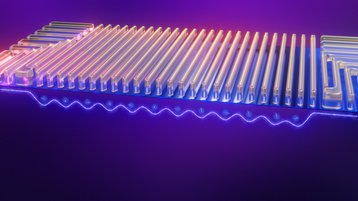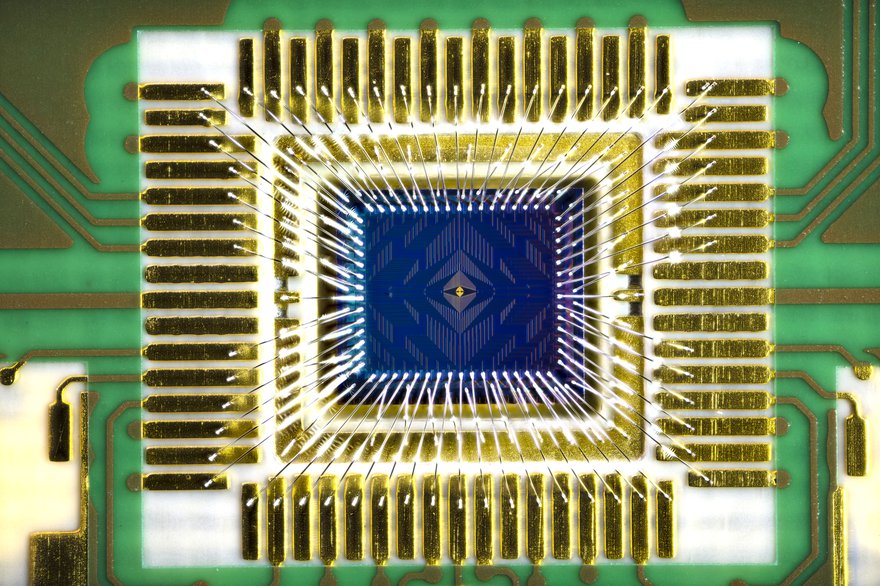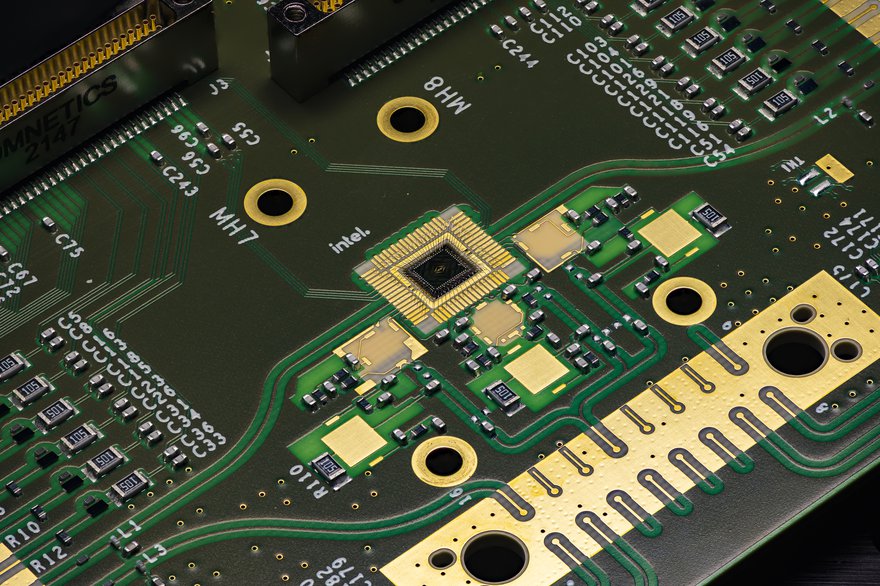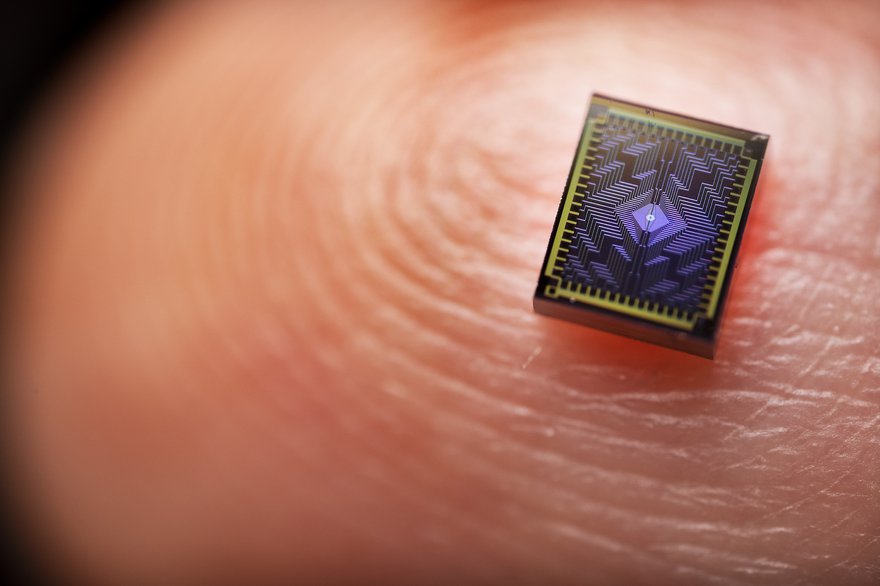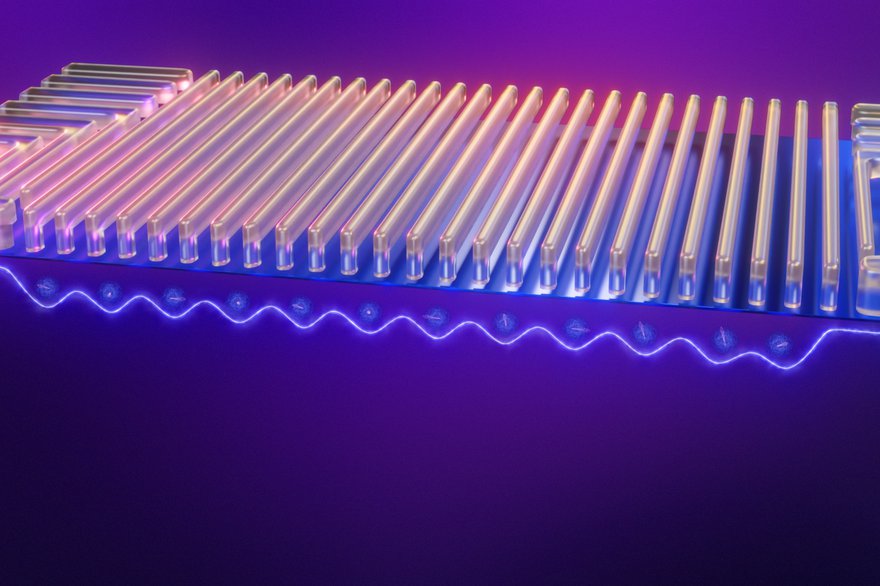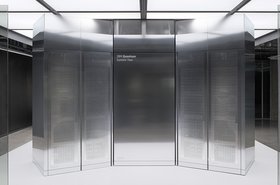Intel has launched a 12-qubit chip for quantum research.
Tunnel Falls contains 12 quantum-dot qubits, and will be integrated within Intel's Quantum Software Development Kit (QSDK) and shared with researchers. At the same time, Intel announced it is working with the University of Maryland's Qubit Collaboratory (LQC) on quantum computing.
It is Intel's first silicon spin qubit released to the research community, and the company is going all out to promote its quantum computing vision, saying it is "democratizing" quantum computing by making these chips available.
“Tunnel Falls is Intel’s most advanced silicon spin qubit chip to date and draws upon the company’s decades of transistor design and manufacturing expertise," said Jim Clarke, director of quantum hardware, Intel. "The release of the new chip is the next step in Intel’s long-term strategy to build a full-stack commercial quantum computing system. While there are still fundamental questions and challenges that must be solved along the path to a fault-tolerant quantum computer, the academic community can now explore this technology and accelerate research development.”
Researchers are working with several different qubit technologies. Intel has backed "silicon spin," while most commercial quantum projects so far have used superconducting qubits from companies like D-Wave and IBM. Competing technologies including trapped-ion qubits from the likes of IonQ, have also been getting attention.
Intel says its silicon spin qubits are smaller and easier to manufacture than superconducting qubits, which are large and require cooling to very low temperatures.
In silicon spin qubits, information (the 0/1) is encoded in the spin (up/down) of a single electron. Each qubit is essentially a single electron transistor, so Intel can make them using relatively standard processes on a complementary metal oxide semiconductor (CMOS) logic processing line.
Intel says this means its qubits are easier to integrate with other tech, and can be scaled more easily with existing fab facilities.
Intel's silicon spin qubits are approximately 50 nanometers by 50 nanometers in size, and made on 300-millimeter wafers, using extreme ultraviolet lithography (EUV) and gate and contact processing techniques in its D1 fab in Oregon. The company claims a 95 percent yield rate across the wafer in making Tunnel Falls chips, so each wafer provides over 24,000 quantum dot devices.
The chipmaker says not everyone can make quantum chips, so it is sharing this one through the LQC to research laboratories, "democratizing" silicon spin qubits. This is part of the Qubits for Computing Foundry (QCF) program which apparently comes through the US Army Research Office.
The first quantum labs to participate in the program include LPS, Sandia National Laboratories, the University of Rochester, and the University of Wisconsin-Madison, and others will follow. Intel says the information gathered from these experiments will be shared with the community to advance quantum research.
“The LPS Qubit Collaboratory, in partnership with the Army Research Office, seeks to tackle the hard challenges facing qubit development and develop the next generation of scientists who will create the qubits of tomorrow,” said Charles Tahan, chief of Quantum Information Science, LPS. “Intel’s participation is a major milestone to democratizing the exploration of spin qubits and their promise for quantum information processing and exemplifies LQC’s mission to bring industry, academia, national labs, and government together.”
Dr. Dwight Luhman, at Sandia National Laboratories, said the lab is "excited" to get hold of Tunnel Falls: "The device is a flexible platform enabling quantum researchers at Sandia to directly compare different qubit encodings and develop new qubit operation modes, which was not possible for us previously. This level of sophistication allows us to innovate novel quantum operations and algorithms in the multi-qubit regime and accelerate our learning rate in silicon-based quantum systems. The anticipated reliability of Tunnel Falls will also allow Sandia to rapidly onboard and train new staff working in silicon qubit technologies.“
Intel promises to release a next-generation quantum chip in 2024.

